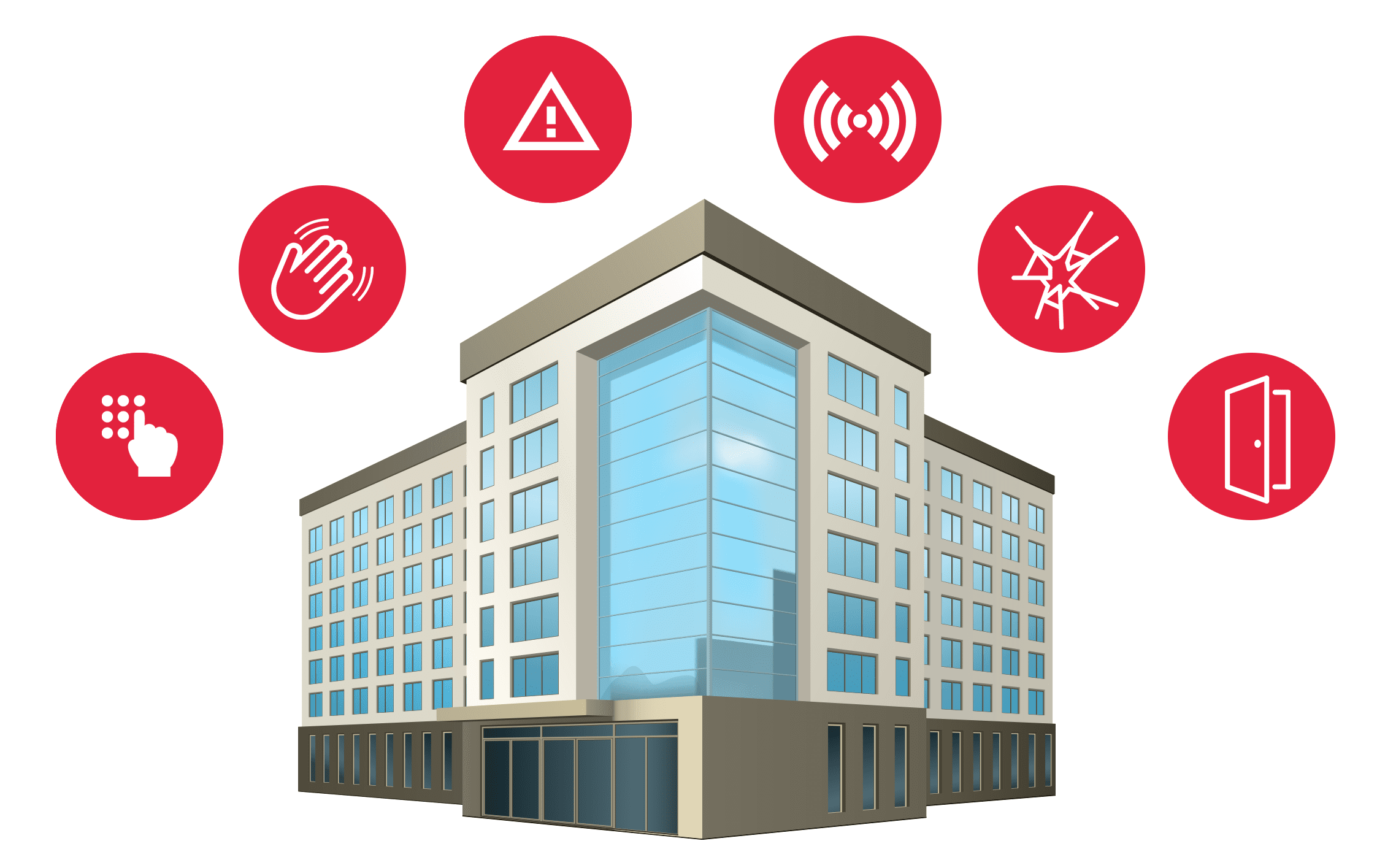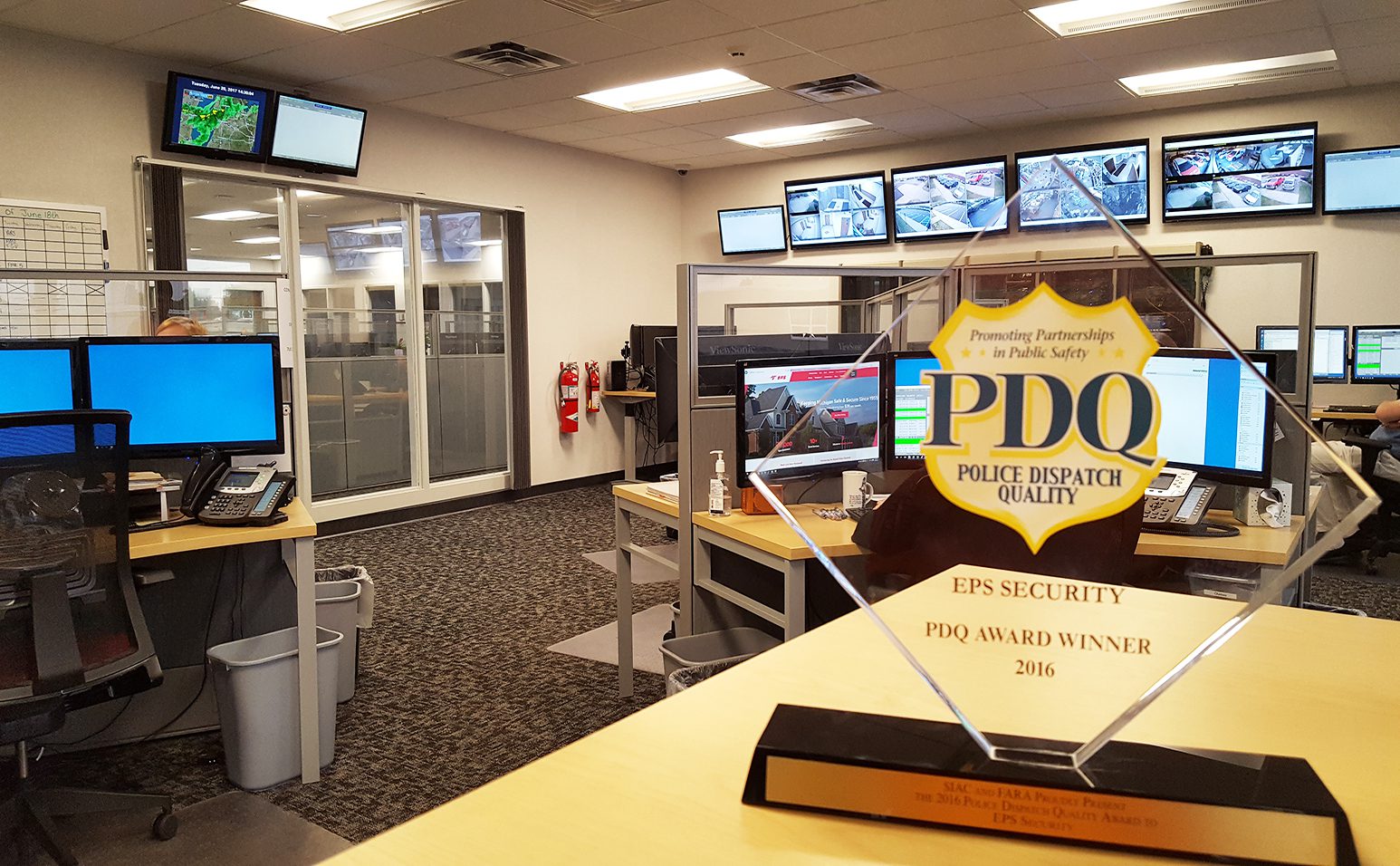A great deal has been written about the importance of burglary and fire systems in protecting businesses from the threats that face them. (More than a few of those articles were written by us.) Modern electronic security systems are exceptionally effective at detecting threats and alerting business owners and occupants to emergencies. However, taking an exceptionally complex and reactive system and combining it with dynamic environments and human interactions results in an increased risk of the dreaded false alarm.
Security systems are more than worth it for their life- and property-saving benefits, but false alarms can be disruptive for both businesses and the emergency services tasked with responding to them. The good news? Several simple steps can be taken to drastically reduce the potential for tripping a false alarm within your own business, allowing your security and fire alarm systems to protect your property as they were intended—in the background and out of the way of your busy day.
 The definition of false alarms
The definition of false alarms
A false alarm, often referred to those in the alarm industry as a “false trip,” is when a security system detects an event that triggers a detection device (a motion sensor or smoke detector, for instance) either without an actual cause or where the cause is a benign, unintentional circumstance. When EPS Security’s Monitoring Center receives these signals from a business’ security panel, there is no way to identify just by interpreting the signal whether the event is a “true” alarm or not. Thus, our dispatchers are trained to follow dispatch protocol based upon the type of system the signal emanated from:
Burglary alarm system
Unless the device in question is a panic button or account notes dictate otherwise, a dispatcher will call the listed contacts of the EPS alarm system to verify the alarm and dispatch emergency responders or authorities as necessary
Fire alarm system
In the event of a fire alarm event, the EPS Monitoring Center immediately dispatches the fire department to minimize response times. Any listed contacts for the fire alarm system are then contacted.
Businesses are dependent on dispatchers to assume alarm signals are real and require emergency action. Attempting to discern whether a fire alarm signal is real or not would waste precious time and could ultimately cost lives. This “better safe than sorry” approach does save time, money, and lives, but dispatching on false alarms can overburden police and fire departments and distract from “actual” alarm events and emergencies.
 What causes false alarms?
What causes false alarms?
Both burglary and fire alarm system false alarms are common, but the causes for false events within each discipline are unique. For burglar alarm systems, it’s estimated that more than 90% of all burglary alarm dispatches turn out to be false. The true burden of false alarms falls on emergency services. Each false burglar alarm requires a police department to commit two officers to investigate the call and usually takes 20-30 minutes to clear. Responding to these false alarms cost police departments an estimated $1.5 billion dollars annually.
Fire systems can also trip falsely. As recently as 2018, fire departments responded to some 2,889,000 false alarms involving fire alarm systems. Because fire alarms are dispatched immediately by monitoring center operators, false alarms on a fire or voice evacuation system are particularly irksome and disruptive. Much like burglar alarms, false fire alarms cost cities a whopping $1.8 billion annually in personnel and resource costs.
The causes of false alarms vary and include:
User error
User error accounts for some 50% of all false burglar alarm calls. Most often, these false trips are caused by a new or improperly trained employee trying to arm or disarm the system. Additionally, cleaning crews, maintenance staff or other part-time or rotating contractors who have not received proper instruction on how to use the system can accidentally trigger an alarm while trying to enter or exit a building. Additionally, users who are attempting to perform routine maintenance such as changing out security device batteries can accidentally trigger a tamper alarm if they are not trained to call the monitoring center ahead of time.
Maintenance issues
Alarm systems are precision instruments which require routine maintenance. When an alarm system is damaged or otherwise neglected, its carefully installed motion detectors, window and door sensors, and other field devices can detect disturbances where there aren’t any. Even environmental factors such as dust-saturated smoke detectors or thick cobwebs over a motion detector can trigger an alarm event in an otherwise peaceful setting.
Poor engineering and installation
Discount security companies often result in a discount product. If door and window sensors aren’t aligned properly or if the wrong type of motion sensor is used in the wrong setting, the system may trip falsely—if it will even set at all. Poorly installed and engineered systems may also use the wrong devices in a problematic area. For example, a particularly dusty or steamy work area may be a better place for a heat detector than a smoke detector, the latter of which may mistake dust or steam for actual smoke. There’s also the possibility that the use of “cheap” security system parts and devices may simply hold up to the rigors of constant use versus sturdier, more highly-rated materials.
 Preventing false alarms
Preventing false alarms
Luckily, minimizing false alarms—and maximizing the benefits of your alarm system—can be achieved with two simple steps.
Firstly, every single person who arms, disarms, or otherwise deals with the security system in your place of business should receive comprehensive training on proper alarm procedure. Every employee who opens or closes the business should be given their own unique alarm code and should know their passcode, the password a monitoring center operator will ask for when calling in on an alarm. They should also be trained to interpret error messages that present on the alarm keypad and clear or bypass devices that are presenting issues. Even cleaning crews and contractors should be given their own unique codes and given in-person demonstrations of proper alarm-setting etiquette.
Knowing how to use an alarm system isn’t knowledge people are born with. That’s where the second step comes in: partnering with a commercial alarm system provider with decades of experience in engineering, installing, and maintaining high-end business alarm systems. EPS Security’s stringent and lofty standards for their services and products includes a dedication to minimizing false alarms through:
Careful and comprehensive customization of every individual commercial burglary and fire alarm system
A commitment to using only the highest quality vendors and devices
Rigorous training of our technicians and technical support staff
The monitoring of alarm signals by our local, in-house Monitoring Center—one which has been nationally recognized for its efforts in false alarm reduction
Service agreements and preventative maintenance plans to maintain system health and functionality
Training our customers on the proper use of their EPS Security alarm systems
Alarm systems save money, lives, and livelihoods. The right security company can help to keep your system functioning to its fullest potential, which in turn allows you and your business to help your community’s emergency response team focus on those in need. Don’t waste your busy days and nights fretting over your business’ security solution. Let EPS Security take the reigns and help you protect the people, places, and things that matter most to you.
